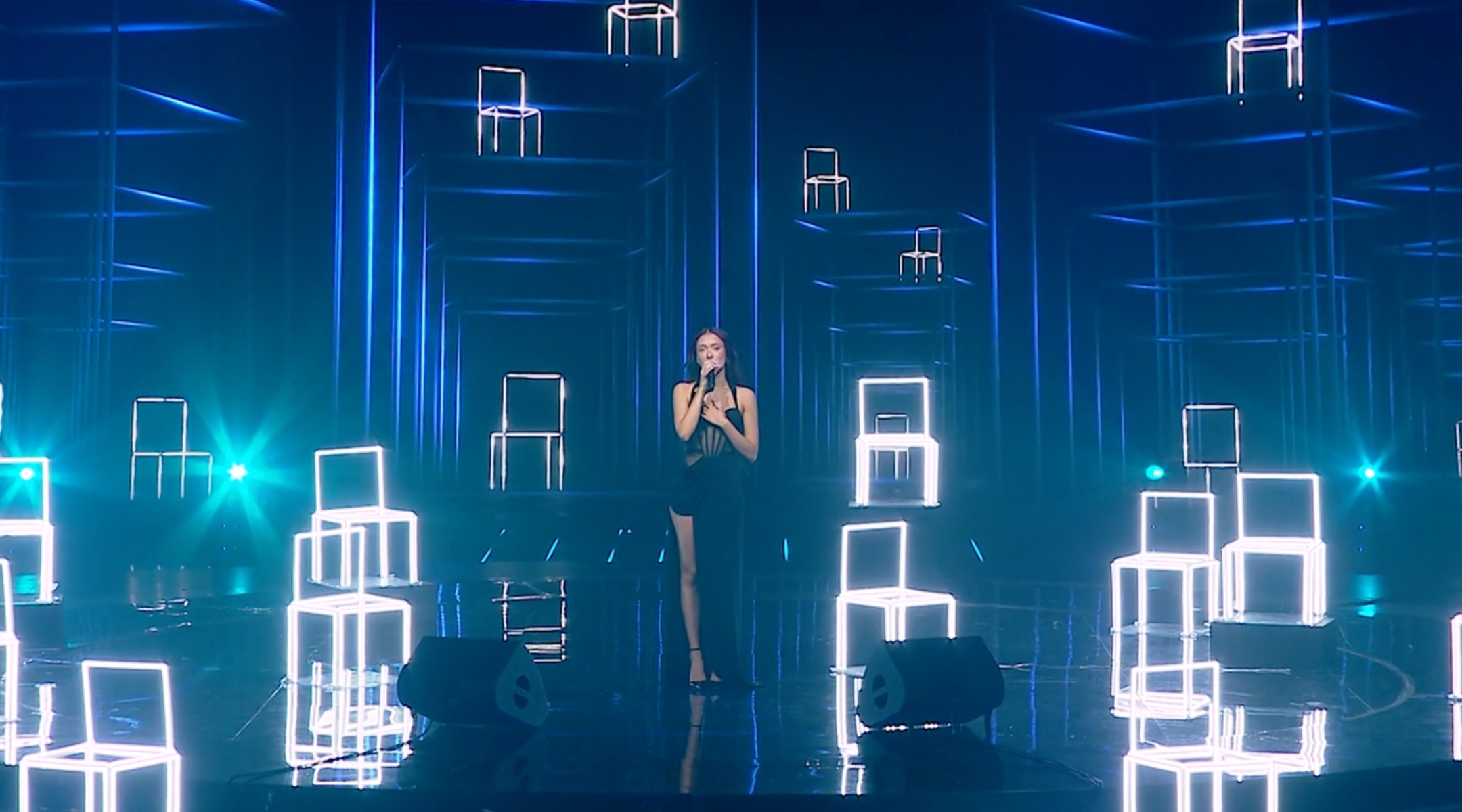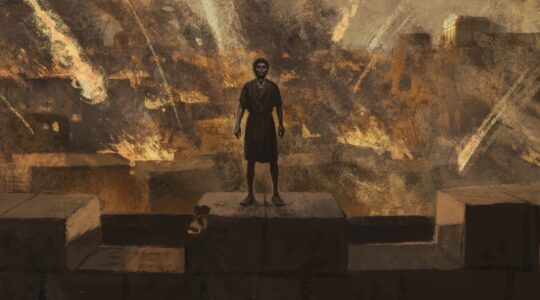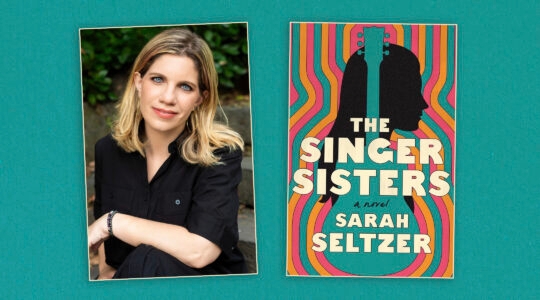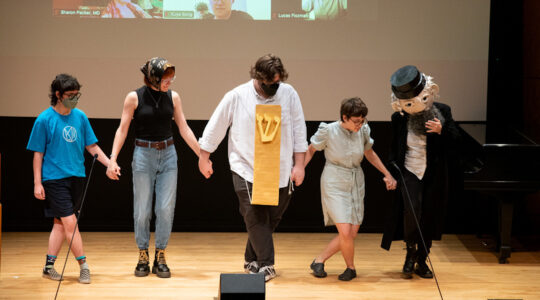(JTA) — Israeli singer Eden Golan advanced to Eurovision’s final on Thursday night, hours after thousands of people protested her inclusion in the contest while Israel’s war against Hamas in Gaza continues.
In Malmö, the Swedish port city hosting the 68th Eurovision Song Contest, Golan’s performance of her song “Hurricane” received a mix of boos and cheers during Thursday’s semifinal, though the booing was heavily muffled for at-home viewers in the TV broadcast. One man waving a Palestinian flag in the audience appeared to be escorted out by security.
Eurovision guidelines ban flags other than the national flags of contestants and the pride flag, meaning that Palestinian flags were not allowed in the Malmö Arena. Previously, a singer was reprimanded for wearing a keffiyeh, or Palestinian scarf.
Despite the public outcry against her participation, viewers voted Golan through to the final, apparently buoyed by a large share of votes from Italy. She rose through bookmaker rankings to third place by Friday morning, although Croatia remains a clear favorite with singer Baby Lasagna’s track “Rim Tim Tagi Dim.”
Earlier on Thursday, Swedish climate activist Greta Thunberg joined a demonstration against Israel’s participation in the global song contest, which has adopted the slogan, “United by Music.” Local police estimated that between 10,000 and 12,000 people took part in the street protest condemning Israel’s military campaign in Gaza and calling for a ceasefire, surrounded by a heavy police presence. Demonstrators set off smoke flares in the colors of the Palestinian flag in Malmö’s central square.
The protest was loud but largely peaceful and resulted in few arrests, according to police. A pro-Israel rally nearby drew about 120 people.
Larger numbers of people are expected to flood the streets on Saturday, when Golan competes in Eurovision’s final. Artists and activists have called on the contest to ban Israel for weeks, accusing the competition of a double standard after excluding Russia shortly after its invasion of Ukraine in 2022. Eurovision organizers have contended that Russia was banned specifically because its broadcasters breached “membership obligations” and violated “public service values.”
Some protesters have organized alternative events in Malmö, such as “FalastinVision,” billed as a “genocide-free song contest” that will host 15 artists from eight countries at a live show scheduled the same time as Eurovision’s final, just a few miles away.






